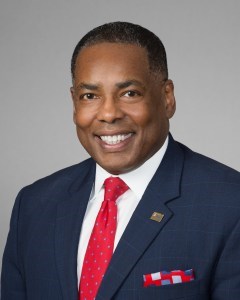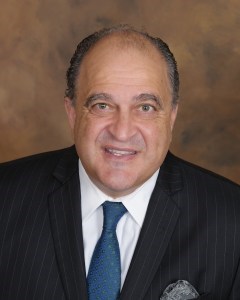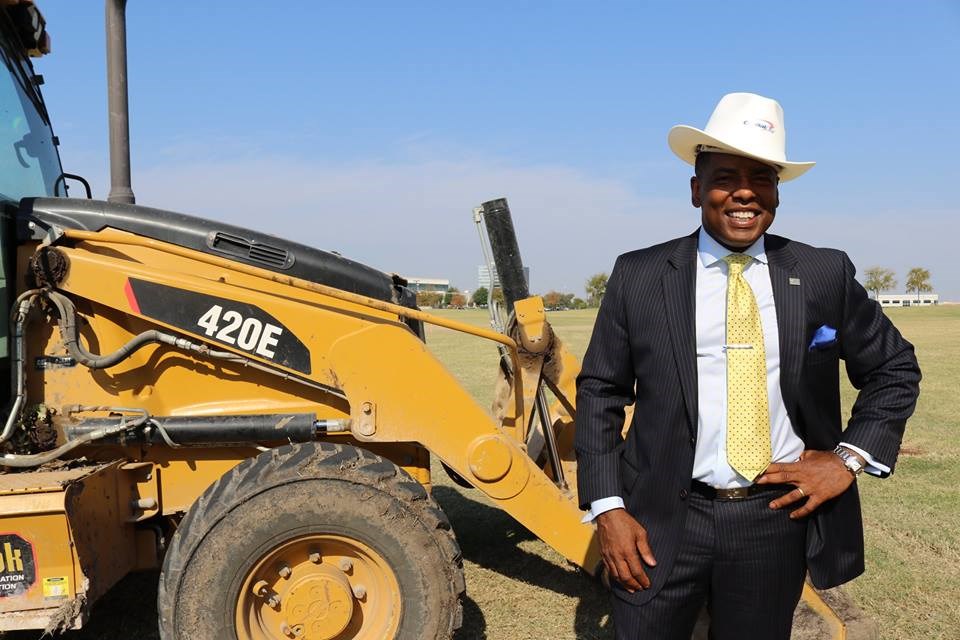Quick take-aways:
- Be a servant leader. Volunteer in what you are passionate about.
- Ask yourself why you want to run.
- Build a team of followers and advisers.
- You are the face of the community. Lead by example.
- Be clear and concise in your position.
- Know that not everyone is going to agree with you.
- You will walk away with a better understanding of your community and new friends.
Harry LaRosiliere decided he wanted to become a mayor in the early 1990s when he was a young Black man living in New York City.
“I felt that to be mayor is to be the soul of the city, to be a unifier,” he said.
Frustrated that more wasn’t being done to quell racial tension in the city, he began volunteering to tutor teenagers in math in a mayor’s mentorship program in Washington Heights, a Manhattan neighborhood at the heart of this racial tension. “I was able to make a difference in their lives; that was the start of the calling for me,” he said.
In 1994, he moved to Texas and worked as a financial advisor and volunteered on a number of boards of nonprofits and commissions in Plano. He ran for city council, serving two three-year terms from 2005 to 2011, and spent a couple of years as a Planning & Zoning commissioner before being elected as Plano's first Black mayor in 2013.

LaRosiliere turns 59 in May when he steps down after completing his second four-year term as the city’s leader. “The mayor is not the soul of the city but a reflection of the soul of a city,” he said. “Our job is to bring out what is there already and bring it to light.”
The Plano mayor’s call for citizens to volunteer and seek office was front and center in the second in a series of in-depth videotaped roundtable discussions presented by the Collin County Business Alliance in partnership with Local Profile.
Joining the roundtable discussion was former Frisco Mayor Maher Maso who won three consecutive elections between 2008 and 2017 before reaching the nine-year term limit.
Unlike LaRosiliere, Maso never had a goal to be mayor. He moved in 1992 to Frisco, which then was mostly farmland with a population of 6,500 and six schools.
“To go shopping we had to drive over dirt roads to go to Plano for food,” he said.
The 57-year-old business executive became president of his homeowners association and volunteered with his school district. His friends persuaded him to run for city council in 1996. But he lost a close election. He tried again and prevailed in 2000.
After seven years on the council, he was ready to retire from elected positions. Friends pushed him again, this time to run for mayor. He ran and he won.
During his nine years as mayor, Maso planned and managed a period of explosive growth. Today, Frisco’s population is about 185,000, and has about 70 schools.
“My route to elected office really came through volunteering,” he said. “People learn to trust you and rely on you and you learn from them.”
What Are The Requirements?
Both LaRosiliere and Maso are immigrants.
Born in Haiti, LaRosiliere grew up in Harlem where his mother cleaned offices and his father worked in a factory and drove cabs. LaRosiliere was the first in his immediate family to go to college.

Maso, the youngest of eight children, moved to the United States from Jordan. His mother worked as a seamstress at a department store in Seattle and cleaned houses at night. His father worked at a gas station.
When he was 20 and in college, Maso received a cancer diagnosis.
“Hearing people crying, seeing suffering that was around me changed my life,” he said. “It brought new awareness to the human condition and the impact we make on others’ lives.”
He began volunteering.
You don’t need a special degree to run for office. Being engaged in your community and having an open mind will earn you trust, Maso said.
“No one gets elected and knows everything,” he said. “Be willing to learn and listen.”
Is It Fulfilling?
LaRosiliere considers himself a servant leader.
He became involved in a summer internship program started in partnership with Capital One and the City of Plano. “Being mayor is not about legislation, not about smaller government taxes and regulations and ordinances,” he said. ”It’s about touching peoples’ lives.”
Once elected, pay attention to the intent of your decisions, gather information and always emphasize integrity, LaRosiliere added.
Being an elected official can be a round-the-clock job, Maso said.
“You are the face of the community and you lead by example,” he said.
The best part about being an elected official is always learning something new and meeting some really cool people, he said.
“It’s not about achieving something,” he said. “It’s about who you want to be as a person.”
What Steps Do I Take to Run?
One of the first steps in deciding to run for an office is to ask yourself why, LaRosiliere said.
LaRosiliere didn’t have an agenda of lowering taxes or putting up speed bumps. “It was simply to make the lives of the people around me in my community better,” he said.
Campaigning takes money. It takes time. And you have to get the full buy-in from your family and from your employer. “Once you get into that seat, you then move forward in a manner that is reflective of your why,” he said.
Volunteer in something you are passionate about, Maso said. And begin building a team of people you can lean on for support.
Seek an elected position to make a change, not as a stepping stone to future political office, he said.
Be clear, be concise and know that not everyone is going to agree with you.
“Some of my biggest supporters, some of my best friends today originally opposed me,” he said. “But then they learned that I will weigh the decision, I will listen to them and i will make a decision based on the facts and not straddle the fence.”
The effort is worth it, even if you’re not successful at being elected.
“You will walk away with more understanding of your community,” he said. “You will walk away with new lifelong friends and you will be a better person for it.”




